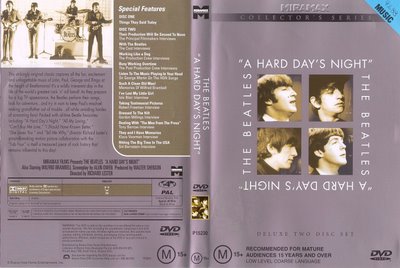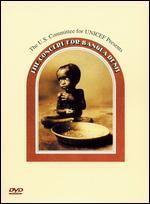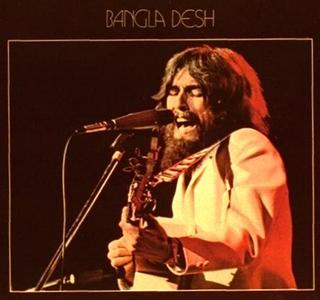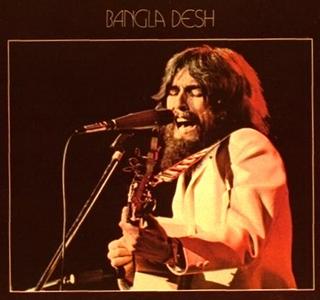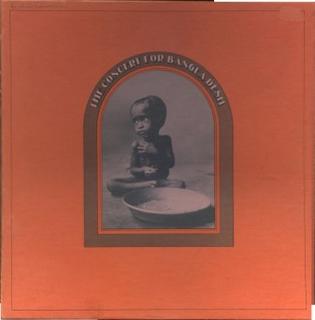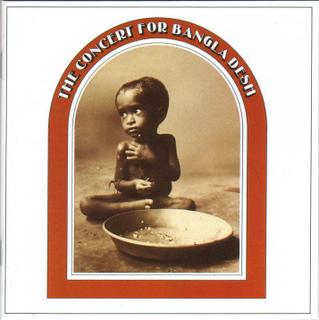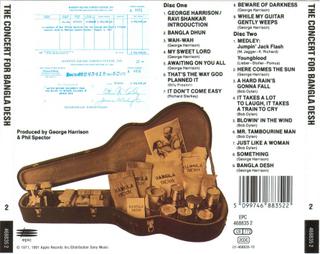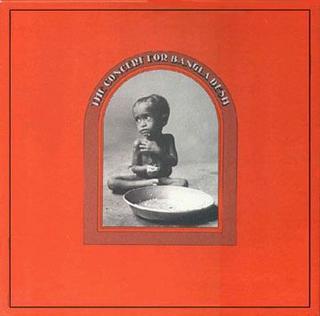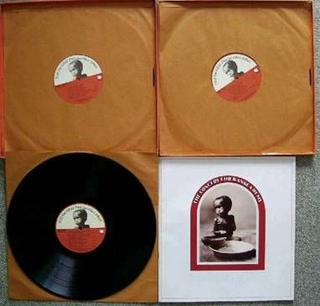Before his untimely death in 2001, George Harrison wanted to share his revolutionary 1971 Concert for Bangladesh with the Live Aid generation. Now his widow Olivia has done just that. She talks to Louise Jury
Published: 19 October 2005
When George Harrison died of cancer four years ago at the age of 58, his widow, Olivia, vowed to finish the projects he had been working on.
 So far she has continued the restoration and maintenance of the large Victorian garden at their mansion near Henley-on-Thames, remastered and released six albums from his back catalogue and finished Brainwashed, the album he was working on in his final months. And today, in Los Angeles, she will be joined by her husband's friends - led by fellow Beatle Ringo Starr and a clutch of other Sixties rock musicians - to launch a DVD, with accompanying documentary, of the concert that Harrison organised in 1971 to raise funds for refugees in Bangladesh.
So far she has continued the restoration and maintenance of the large Victorian garden at their mansion near Henley-on-Thames, remastered and released six albums from his back catalogue and finished Brainwashed, the album he was working on in his final months. And today, in Los Angeles, she will be joined by her husband's friends - led by fellow Beatle Ringo Starr and a clutch of other Sixties rock musicians - to launch a DVD, with accompanying documentary, of the concert that Harrison organised in 1971 to raise funds for refugees in Bangladesh.The original Concert for Bangladesh and associated merchandising raised $15m, which was distributed through Unicef, the United Nations' Children's Fund, and all the royalties for the new release will go to the same cause. It is this cause that has enticed the reluctant Mrs Harrison into the limelight. She looks slightly uncomfortable at being the focus of attention, though she tries hard to be gracious.
In an elegant cardigan-jacket and fitted black trousers, Olivia, petite and raven-haired, nurses a coffee and betrays her Mexican-American roots with a gentle accent as she requests her own tape recorder to record our interview. We talk in the living room above her office at the headquarters of Apple Records, the Beatles' label, in a Belgravia townhouse that would make an estate agent swoon.
Images of John, Paul, Ringo and George line the walls and it remains the hub of the Fab Four's vast business empire, which backed Harrison's venture in 1971 and is supporting the release of the DVD now - albeit for no profit. I wonder whether it is distressing to be confronted with so many reminders of her late husband, but Olivia retains her detachment. "I always separated George the artist from George the person." Even when he was alive, she says, they would walk past pictures of him as if it were somebody else entirely.
Indeed, she resists discussing her emotional life and is on guard against betraying the privacy she and Harrison guarded so closely. It is Unicef she wants to talk about. The fund co-operated with the release, and the UN Secretary-General Kofi Annan spoke warmly in the accompanying documentary about the impact the original concert had. "This re-issue is a very big deal for Unicef; they're really happy about it," says Olivia. "We're just handing them the whole project and hopefully it will generate more funds for them. It's an historical document and it's theirs."
The concert came about after Harrison's friend Ravi Shankar confided his fears for his native Bengal, where thousands of refugees created by its fight for independence were stricken by severe floods. But it was a nerve-racking venture, with Harrison unsure until the very last minute whether friends such as Eric Clapton and Bob Dylan would turn up to Madison Square Garden for the two performances, in the afternoon and evening of 1 August. Although it ultimately proved to be the model for Live Aid and the huge charity concerts of the Eighties and Nineties, the event, according to Olivia, represented risky and uncharted waters at the time.
"The music community had never made that sort of endeavour before. But it was innocent and simple and straightforward and beautiful, I think, because it was an expression of concern through their music. It was the only way George knew how to help." The idea of the DVD was originally floated before what would have been the 30th anniversary of the concert in 2001, and Harrison seized on it with typical enthusiasm. The original footage was retrieved from storage at Apple. But with Harrison undergoing treatment for the throat cancer with which he was diagnosed in 1997, he had remastered only the music by the time of his death.
He never saw forgotten footage of, for instance, himself performing "If Not For You" with Dylan in rehearsals, and a Dylan performance of "Love Minus Zero/No Limit" not included in the original film (which was released briefly on VHS). It was left to his softly spoken widow to put all the film together and complete the work.
"I couldn't devise a more perfect project for myself. It's so close to George and he had his hand on it. I couldn't just put it back on the shelf," Olivia says. Dhani, her son with Harrison and also a musician, helped complete Brainwashed, but he has been less involved with the DVD. "It's a bit more my era - 1971," she says, smiling.
As Olivia reminisces about Harrison and how carefully he looked after his fellow musicians, how touched he was that men like Clapton and Dylan had agreed to take part because they could see it mattered to him, it is almost possible to forget that she was not there at the time.
Although the film project has brought her as close to the event as many who were actually present, she only experienced the concert second-hand. She and Harrison met three years afterwards, when they were introduced at his American record label where Olivia, then 27, was working. But in 1971, she had been travelling in Europe. "I remember being annoyed that I didn't know about the concert and thinking, 'How can I have missed that?'" Yet she recalls the effect it had on public awareness of the disaster in Asia. "I don't think any of us knew about it before, I'm ashamed to say. We didn't have the media like we have today."
David Puttnam, the film producer and Labour peer who was at the first concert, believes that Bangladesh had not really been an issue for the international community before Harrison used his fame to put it on the agenda. In the documentary accompanying the DVD, he speaks warmly of the ex-Beatle as a Sixties romantic. "He never gave up hoping that the dreams of the Sixties could be realised. In hindsight, I think what was so special about George is that he always believed in the power of goodness." Olivia seems touchingly grateful for these words. "It's lovely of him to say that. It's hard for me because George didn't like to blow his own horn and I don't want to do it for him. He wouldn't like that. He was very self-deprecating. But George always wanted to make something better. He learned a lot from that concert personally, what he could achieve."
Harrison has often been presented as a difficult recluse, but Olivia says it was only the press he wished to avoid. "Ringo always used to say George was the most social 'recluse' he knew. If you came to the house, there would always be people there. If he walked in the room now, he would make you smile. He had a great presence, and he was an uplifting person," she says, adding: "He could be grumpy too, but he didn't like people around him to be unhappy. He liked everyone to be having a good time. Otherwise it was a waste of life. People say life is too short and it is." And so it proved. Inquiring about Harrison's final days with cancer, I ask whether he had, Dylan Thomas-like, raged against the dying of the light, but Olivia responds quickly: "There's no dying of the light." It's a reaction that springs from the profound spiritualism she and her late husband shared, a spiritualism that to a non-believer seems strangely at odds with the immaculately coiffured and manicured woman discussing the practicalities of transferring film to video.
"I feel very fortunate. I have a lot of joy because I know it's OK," she says. "This physical world is not the end by any means. It's just another place you pass through. I don't just believe that, I know it." Ask her whether she thinks she will be reunited with her late husband and she suggests she will. "In the Vedas [ancient Hindu scriptures], it says you'll meet a multitude of past relatives and lovers and people and friends that you know, so why not think you're going to bump into somebody somewhere along the way?"
She will not discuss the possibility of ever finding love again. "I have too many things to do right now. I'm on an even keel and I like it this way." When Harrison died in 2001, the couple were living in Switzerland where they had moved after he was attacked and stabbed by an intruder at their Henley home, but she has since returned to Britain. She is uneasy talking about that difficult period, but says Harrison had wanted to leave the UK for a long time and the attack was the clincher. "If he hadn't died, Switzerland would have been our home. But after he died, I came back. I had more history here."
Cynthia, John Lennon's first wife, has recently published an autobiography, which includes the allegation that Harrison had an affair with Ringo Starr's first wife, Maureen, after Starr left her in the early 1970s. Olivia says nothing about the claim and, while refusing to criticise Cynthia for her revelations, the idea of doing likewise clearly appals her. "Cynthia has just written a book about John. That's fine," she says. "I just want to appear where I have to. I don't need to say anything about George to present him or preserve him because that's not what he would have wanted. I'm just trying to finish what he started."
'The Concert for Bangladesh: George Harrison and Friends' is released on Monday on double DVD through Warner Music Vision and on CD through Sony



